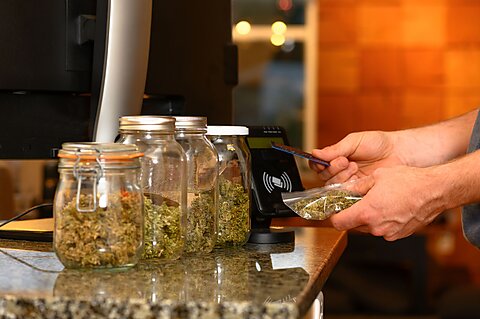Jeffrey A. Singer
As philosopher Jessica Flanigan pointed out in her book Pharmaceutical Freedom, autonomous adults have the fundamental right to self-medicate. Michael Cannon and I wrote in our white paper Drug Reformation, that Congress recognized the need to respect the right to self-medicate as recently as 1938, when lawmakers venerated that right even as they unintentionally undermined it by passing the Food, Drug, and Cosmetic Act of 1938.
Alas, many decades have passed since policymakers and pundits have given even a slight nod to the right to self-medicate. And yesterday, voters in four states demonstrated how democracy and freedom are not synonymous. A majority of voters democratically chose to continue making it a crime for people to consume marijuana for nonmedical purposes, and in one of those states, they kept it a crime for people to consume psychedelics for medicinal or nonmedicinal purposes.
North Dakota, South Dakota, and Florida asked voters to remove barriers to people consuming marijuana recreationally. Yesterday they said no. In Nebraska, a majority of voters decided to stop preventing their fellow adults from consuming marijuana but only if they consume it for medical reasons.
A majority of voters in Massachusetts chose to continue infringing on the right of Massachusetts adults to consume psychedelics. There, Question 4 would have removed barriers to adults consuming, possessing, cultivating, and distributing (but only for free) psilocybin, psilocin, mescaline, ibogaine, and DMT (the active ingredient in ayahuasca), and would enable clinicians to practice psychedelic-assisted psychotherapy.
Decades of research suggest that psychedelics have great potential to treat depression, PTSD, addiction, and other mental health problems. An underground psychedelic-assisted therapy profession has matured over the past several years. Voters in Colorado and Oregon have removed some barriers to psychedelics, although Oregon lawmakers brought back some of those barriers earlier this year. Sadly, a majority of voters in Massachusetts opted yesterday to keep barriers in place.
Politicians and pundits sound alarms about threats to democracy. Too few of them seem equally concerned about threats to individual rights. Yesterday’s votes on adult consumption of marijuana and psychedelics demonstrated that, while the democratic process was alive and well, respect for individual rights and adult autonomy was lacking.
